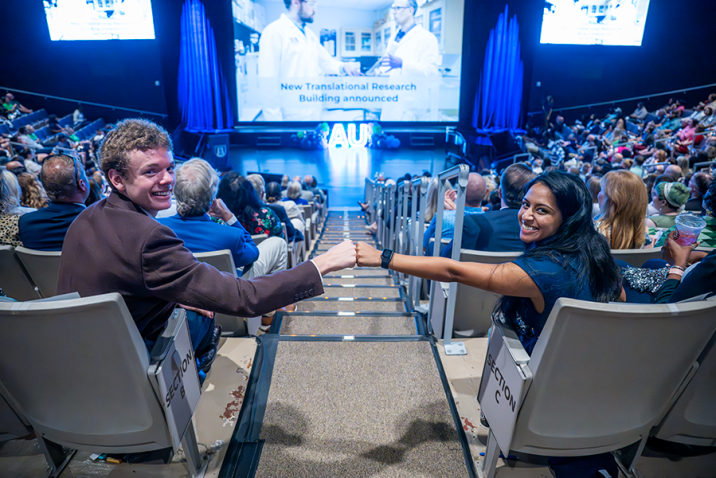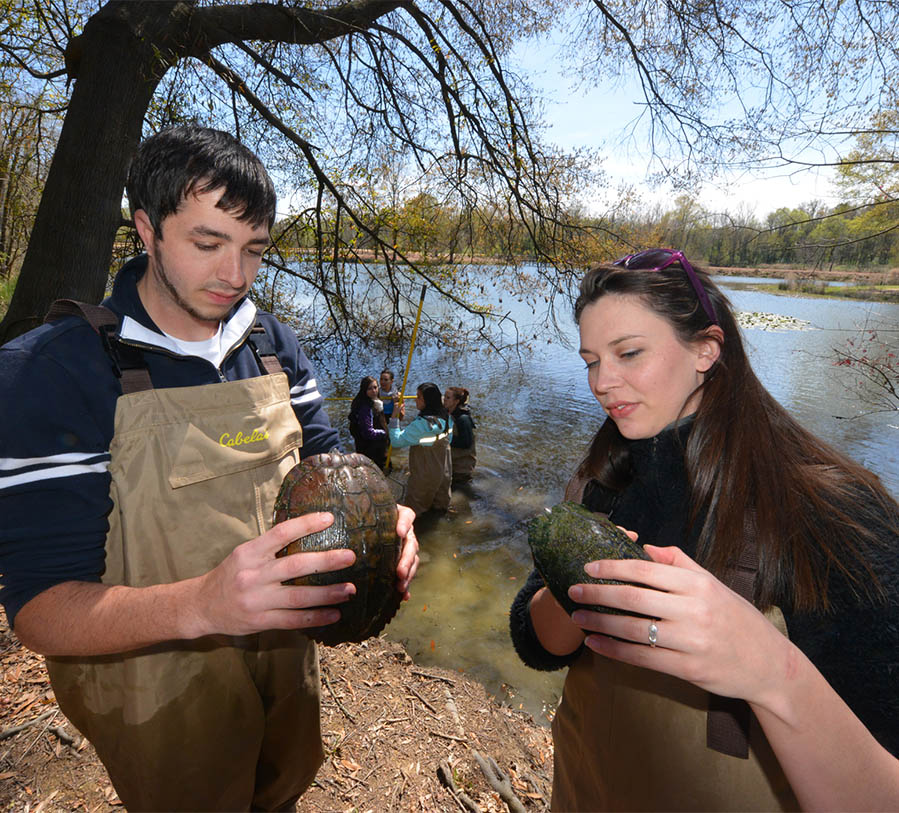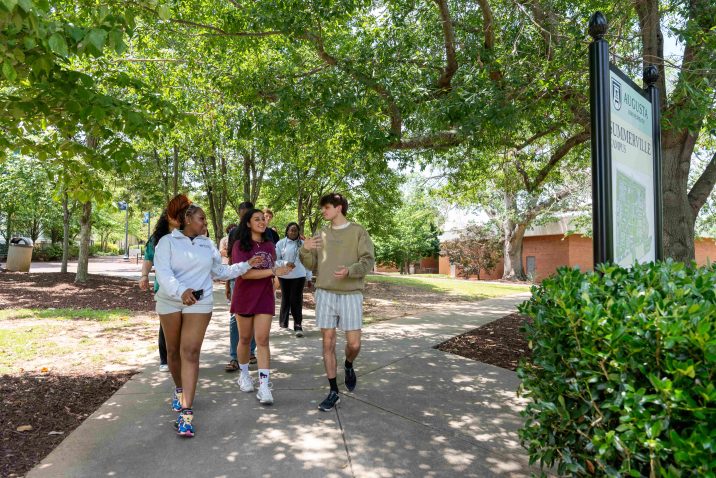Biology
Are you ready to explore the science of life — from molecules to ecosystems — and turn that knowledge into a meaningful career? Whether your goal is to work in research, healthcare, biotechnology, environmental science, or pursue advanced degrees in medicine, dentistry, veterinary science, or other health professions, our biology program will prepare you to get there.
Housed in the College of Science and Mathematics, the Department of Biological Sciences at Augusta University offers students a rich and rigorous education grounded in hands-on learning, research, and faculty mentorship. Our program empowers students to think critically, solve real-world problems, and build a strong professional or graduate study foundation.
Biology is for you if you consider yourself
Biology Program
1201 Goss Lane
Augusta, GA 30912
Science & Mathematics Building
706-737-1539
What You'll Study
Coursework
As a biology major, you'll gain a strong foundation through hands-on labs, research, and coursework in genetics, microbiology, ecology, and more. An ecology concentration offers a focus on evolution and environmental biology, preparing you for careers in conservation, wildlife biology, or environmental consulting.
Experience-based Education
Outside the Classroom
Biology students at Augusta University gain hands-on experience through undergraduate research in molecular biology, neuroscience, ecology, and more. Student-led organizations like the Biology Club and Beta Beta Beta honor society, along with pre-professional clubs, offer networking and career development.
Departmental awards and scholarships recognize academic excellence, leadership, and research achievements.
Research & Innovation
Whether you’re an undergraduate or graduate student, you’ll have opportunities to create your own research projects or work with faculty to tackle some of the world’s most complex and pressing challenges.
New Home
A new, state-of-the-art building with 22 teaching labs, a tutoring center and a top floor dedicated to research is located on the Health Sciences Campus, maximizing educational and research opportunities.
Learning Community
The College of Science and Mathematics’ living learning community helps incoming freshmen thrive during that critical first year of college by offering a supportive network of like-minded students and plenty of engagement opportunities.
Tutoring Center
A tutoring center specifically for science and math students is located on the Health Sciences Campus, with similar help also offered at the Academic Success Center on the Summerville Campus.
Your Future
Career Options
Earn a Biology degree from Augusta University and unlock diverse career paths in healthcare, research, education, and environmental science. Graduates thrive in biotechnology, public health, and advanced studies in medicine, dentistry, and veterinary fields. Build a strong foundation for success in today’s evolving scientific landscape.
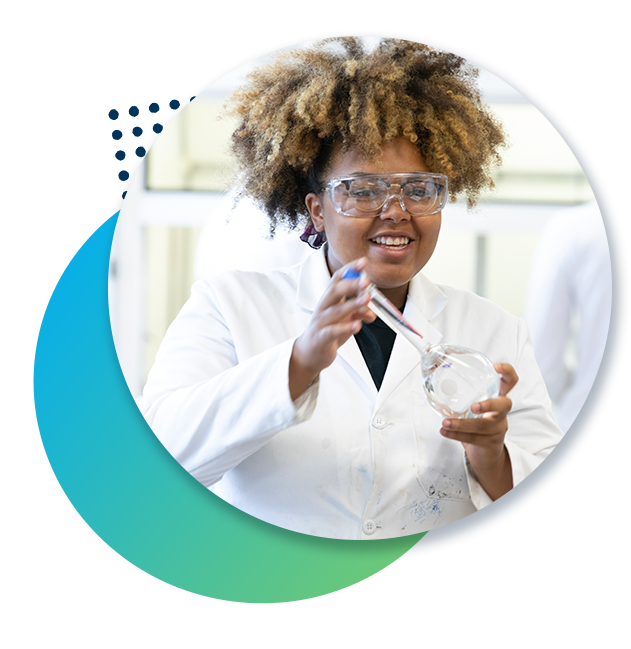
Why Augusta?
As Georgia’s only Health Sciences Center of Excellence, students have the chance to apply for the BS-MD or BS-DMD programs as well as follow pre-professional programs that prepare them for continuing their academic journey.
An emphasis on research means graduates leave the program with the practical lab and field experience employers and graduate schools are looking for.
A new building in the heart of the Health Sciences Campus puts Biology students in the middle of the university’s research enterprise, maximizing opportunities for internships and mentorships.
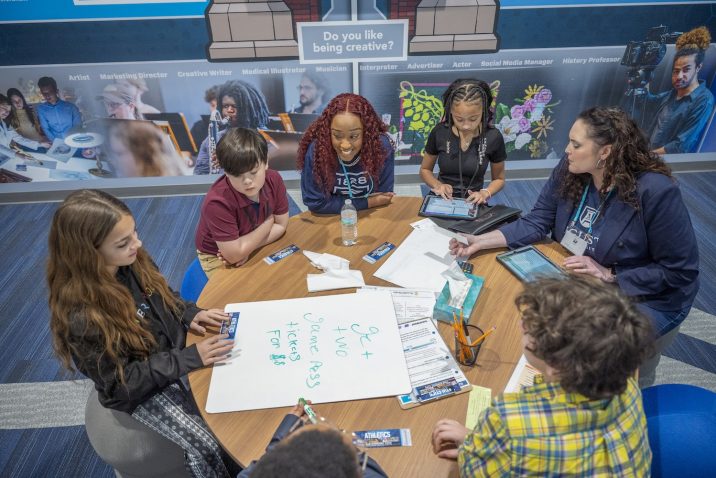
AU earns Carnegie Elective Classification for Community Engagement
AU earns Carnegie Elective Classification for Community Engagement